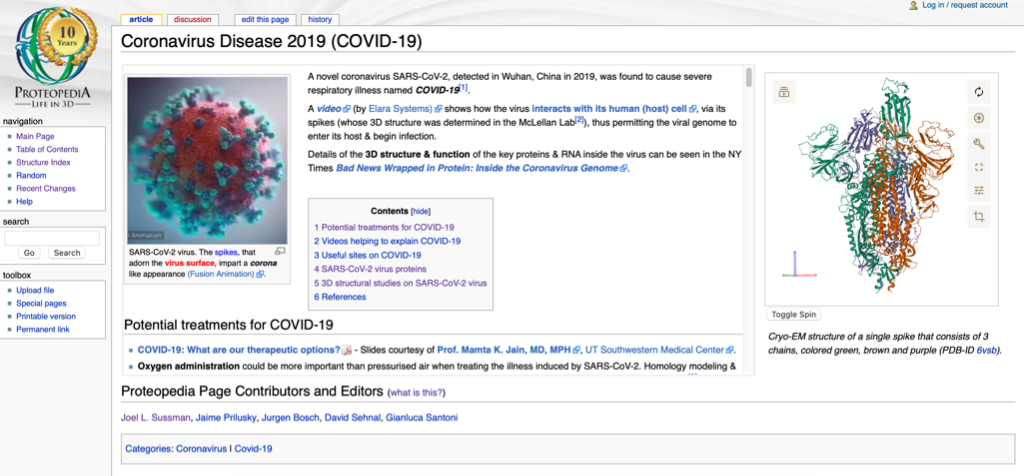Scientists at Instruct Centre IL lead crowdsourcing initiative to make coronavirus research widely accessible
Scientists from across the world have been contributing to the Coronavirus Disease 2019 (COVID-19) microsite on Proteopedia: the free, 3D-encyclopedia of proteins and biomolecules, founded by Profs. Jaime Prilusky and Joel L. Sussman at the Weizmann Institute of Science (Instruct Centre IL). The dedicated COVID-19 page contains a variety of resources related to SARS-CoV-2, helping to make the latest structural biology research accessible to scientists and public alike.

The Coronavirus Disease 2019 (COVID-19) webpage on Proteopedia.
The COVID-19 page explores the structure and pathogenesis of the SARS-CoV-2 virus through articles, videos and web-based resources, curated by the Proteopedia team. The page disseminates the latest science, including potential anti-coronavirus targets, and explains SARS-CoV-2 infectivity through the 3D structure of its proteins and single stranded RNA genome. Among the resources compiled by scientists and students from Israel, Czech Republic, France, Germany and the USA, is a 3D animation of the SARS-CoV-2 virus particle, showing the characteristic ‘crown’ of spike proteins. The page also includes an interactive 3D view of the SARS-CoV-2 spike protein (determined by the McLellan Lab), accompanied by a video from Elara Systems that shows how the virus infects a human cell, using its spikes to inject viral RNA into its host.
Joel L. Sussman, Professor of Structural Biology at the Weizmann Institute of Science and a lead scientist of Instruct Centre IL, commented that “Although virtually every institution around the world offers today a flood of information on the SARS-CoV-2 and the pandemic, Proteopedia, on the other hand, makes this information easily accessible to health professionals, scientists, students and the general public in a 3D interactive way.”
To discover the resources for yourself, visit the Coronavirus Disease 2019 (COVID-19) on Proteopedia.